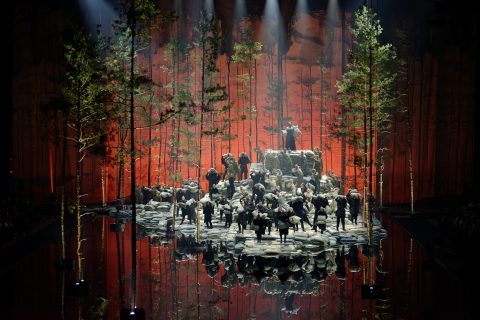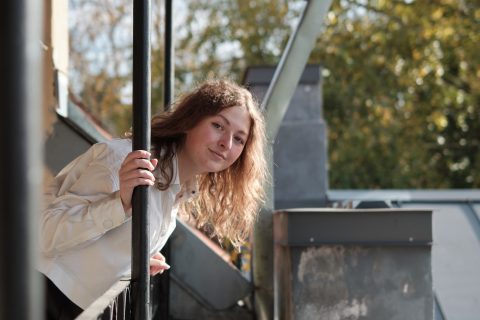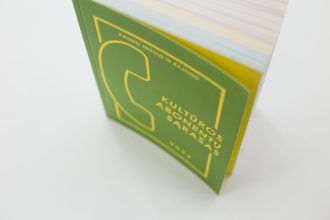The first time the organizers of Puota (feast) decided to flood Kaunas with poetry, was in 2019. Then the poems of Kaunas residents were heard in the city’s public transport in the form of sound installation. The idea that was born under the wing of Kaunas 2022 gradually expanded and became more and more independent.As they themselves put it, Puota is organized by two Austėjas – Balutytė and Pociūtė – and Gustė Vaivilavičiūtė, who share an equal amount of responsibilities in the project. Therefore, I invite you to get acquainted with a young, enthusiastic but experienced team of the project which was selected in 2019 as the most memorable culture initiative of Kaunas.
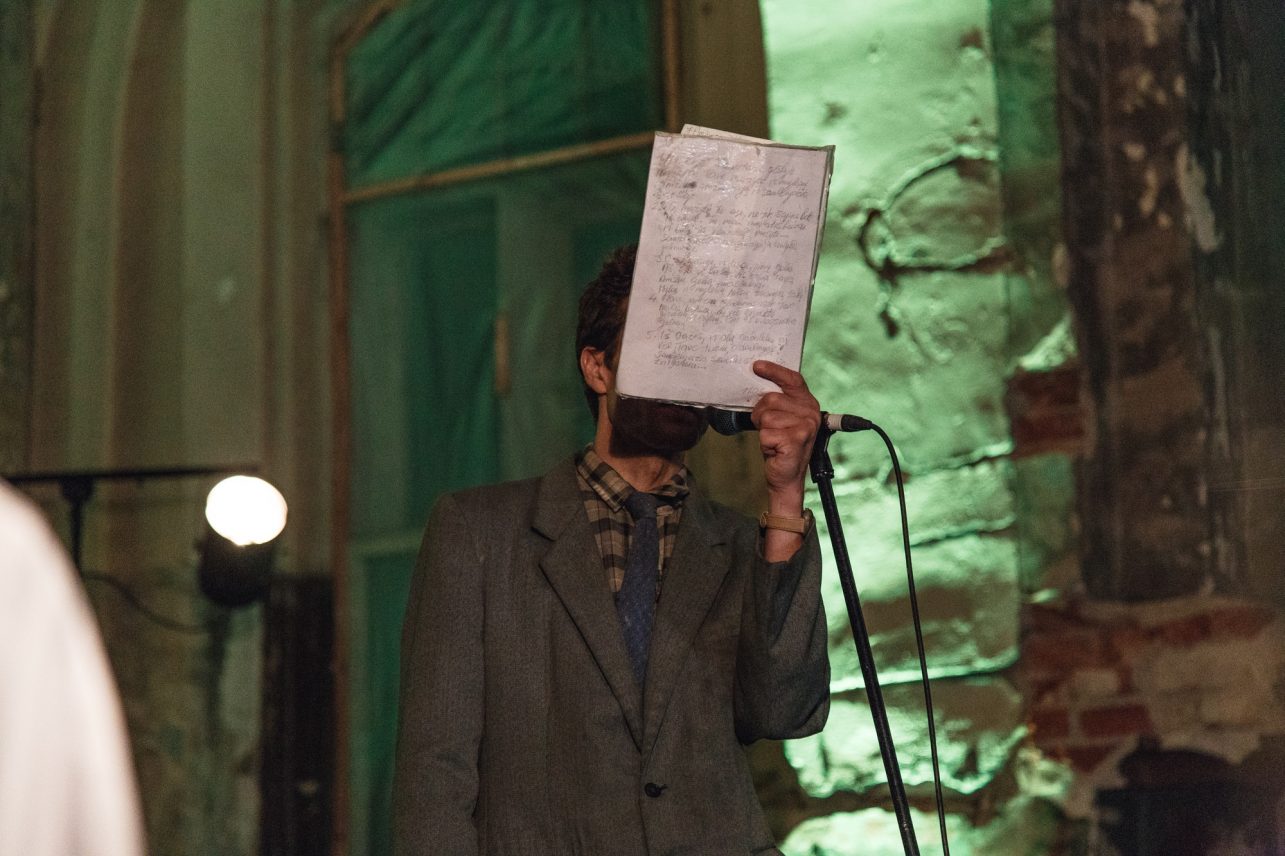
What do you do besides Puota? What place does poetry hold in your life – a hobby, a desire to write professionally, or a job in the field of publishing?
Austėja Balutytė: Currently, I am a freshman at a medical university. I have a few hobbies. The first place goes to contemporary dance, without which I can’t imagine my life, so writing prose and poetry comes second. My grandmother loves poetry with all her heart. So, from my lips at a very young age, I heard countless wonderful poems that sparked my creativity. However, I don’t always find enough time and peace to write. In this case, I choose to read poetry: sometimes sitting on a bench in the park, and sometimes out loud, locked in my room.
Austėja Pociūtė: I am a twelfth grader at Saulė Gymnasium, so my main focus is on finishing school. However, I find time for other activities as well: I contribute to the More Tempo exhibition space project of the Kaunas 2022 which invites young people to present their work and look for interdisciplinary connections between artists from different fields. Another interesting experience is the participation in EYE. Net 2.0 international political theatre initiative for youth, during which, together with the creative team, we delve into the topics of identity, Euroscepticism, and false information. Writing poetry is not directly related to these activities but reading and listening to professional creative performances really broadens horizons, inspires new ideas, and provides broader literary knowledge.
Gustė Vaivilavičiūtė: Puota is one of the three projects I contribute to. The second is another Kaunas 2022 initiative Komoda. I have also created a tutoring platform Kopo.lt. In addition to that, I study at the KTU Gymnasium and this year I will finish the 11th grade. I don’t write poetry myself and, I will admit, I don’t read it either. In Puota, my goal is to create a medium for others to do it. I think there will never be too many opportunities for artists to express themselves and creating them is an interesting challenge for me.
How did the idea of Puota come about and its first initiative – sound installations of Kaunas poetry in public transport?
G. V.: When developing the idea of Puota, we were looking for an untouched niche that does not fall within the stream of popular culture. As a team, we understood that poetry is an important part of Lithuania, Kaunas, and culture, which young people, forced to read in schools, are often wary of. Our goal was to put the already chewed poetry on a plate and bring it into a person’s everyday life in an audio format on public transport. In this way, we tamed the untouched part of audio culture and returned the colours of poetry to Kaunas.
Puota is a great example of spontaneity.
This project was evaluated as the most memorable Kaunas Culture Initiative of 2019. Next year, it was continued by an even more ambitious Puota: Revival. How did you decide to expand the idea?
A. P.: This evaluation encouraged us to continue with this activity and increase its scale. In Puota: Revival project we did not limit ourselves to sound installations, we also organized an exhibition of citizens’ written works, encouraging them to choose the best author. The main part of the idea was to create conditions for culture lovers to safely participate in the interactive process – in line with the quarantine restrictions – to vote for the favourite piece by scanning a QR code. In this way, we created an opportunity for unknown authors to present their work to readers and offered a challenge – to create a poetic work on the topic of revival and to look at the situation in the world in a more positive way. we exhibited the poems not only in Kaunas but also in trains on the route Vilnius – Kaunas – Vilnius, in order to expand the audience and promote interurban cooperation. The poetry was presented in cafes Kultūra and Chaika, Godo bar, Kaunas Artists’ House, and Caffeine coffeehouse chain, as these are non-traditional cultural centres in Kaunas, and people who frequent these places are often art lovers.
This year you published a magazine that combines poetry and illustrations. What prompted you to look for this connection?
A. P.: During the two years of the initiative’s existence, we have involved a wide range of creators in the creative process. We wanted to share the discovered talents and the library of their works with a wider audience, and we also looked forward to presenting the people involved in the project. Thus came the idea of publishing a limited-edition publication depicting the entire path the project has taken. With the creative task – to produce a visual form for the written word – we hoped to supplement the project community with illustrators. We received many applications, so we even had to choose. Together with the team, we selected forty artists working in different styles and techniques. The diversity of works only reinforced the community’s idea that people of any age can successfully create. In July, we intend to organize a public presentation of the publication, to bring together the community of Puota, the members of which hadn’t seen each other in a long time.
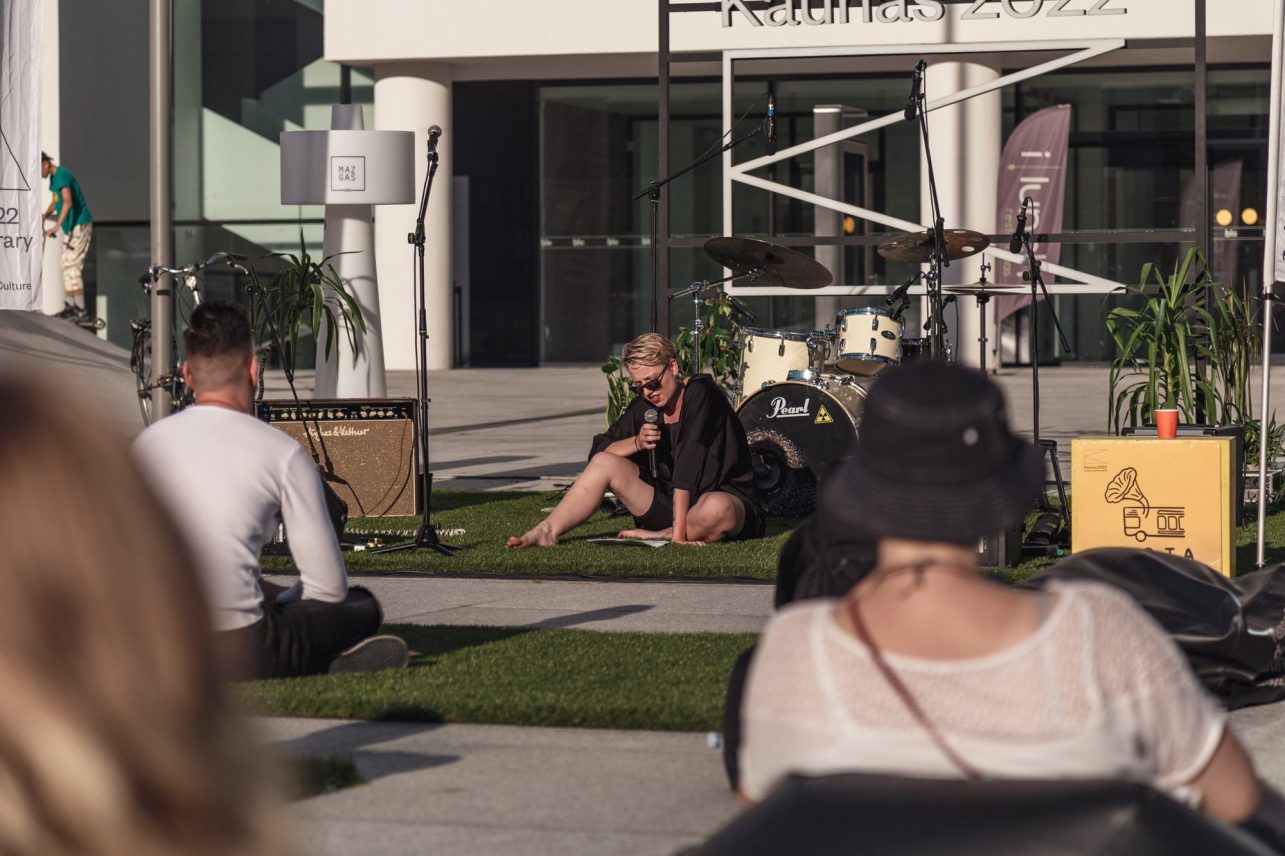
The main initiatives are also complemented by other activities organized by Puota. How has this project grown since the first sound installations?
G. V.: With audio installations, we simply tested the waters, we wanted to try things out and look for our niche. Puota is a great example of spontaneity. It grows and works organically. Each activity or initiative is not a transition period to the big event or product of that year. It’s just a thought that came to us at that minute, which turns into reality in a matter of months. Only by organizing it from the heart and not out of necessity can we grow our project gradually and in a healthy way.
What was your biggest discovery when organizing Puota?
G. V.: How much can be done if you want it and how many things people want.
A. P.: My biggest discovery in organizing the project was the connection that developed with the community of the townspeople and Kaunas itself. I was never a huge patriot, but I feel that over these years when implementing the ideas of Puota, I saw many new sides of the city. One of them is the artists and other active and inventive culture lovers. It’s great to present events and meet more and more friendly faces. I think such sentiments appear in almost every event of the project when you hear people reading texts about the beauty of Kaunas and people’s personal stories in the city.
A. B.: Over the years, we’ve put together a really great community of creators, and today, some of them have become not only regular collaborators but also friends. Among them are poets whom I always found interesting, only I used to see them on the slam stage and was afraid to start a conversation with them, and now I can easily invite them for a cup of coffee to discuss contemporary art. People are my discovery and I think it’s the most amazing thing you can get from a cultural, creative project.
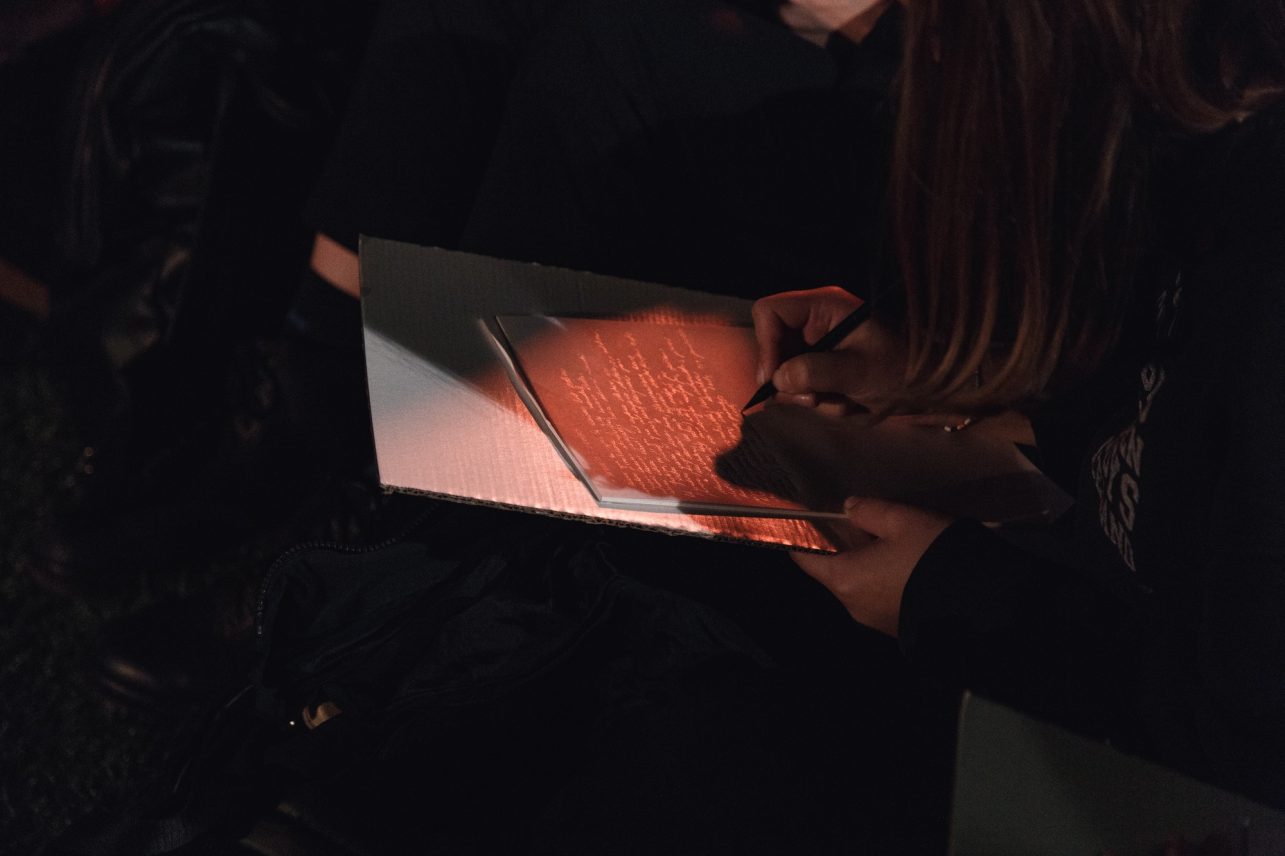
Is it possible to describe in a few words what the poetry of young authors is like?
A. B.: Actually, the age of the creators of our community varies from 15 to 65 years and we receive works from all over Lithuania. Perhaps a characteristic feature of the younger generation is not being afraid to express themselves in strong language and the fact that they speak about sensitive issues. Today, young people do not want to hide their ideas, on the contrary, they want to express them out loud. So, poems often contain natural language without excessive diminutives and epithets.
For a time, poetry seemed unfashionable, but in recent years, this type of art seems to be experiencing a revival, discovering more and more young enthusiasts. Why do you think this is happening?
A. B.: True, poetry was forgotten among young people because it no longer had as strong a social function as it did in the context of the late Soviet era. However, performative poetry, which has come into our culture, has aroused the interest of today’s youth. I think because of slam and other live readings, with at least a minimal dialogue with the audience, we have more writing teens today than we had a couple of decades ago. It has become trendy and relevant again because poetry allows us to bring to the fore new social issues, which we should be talking about.

